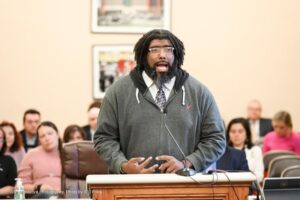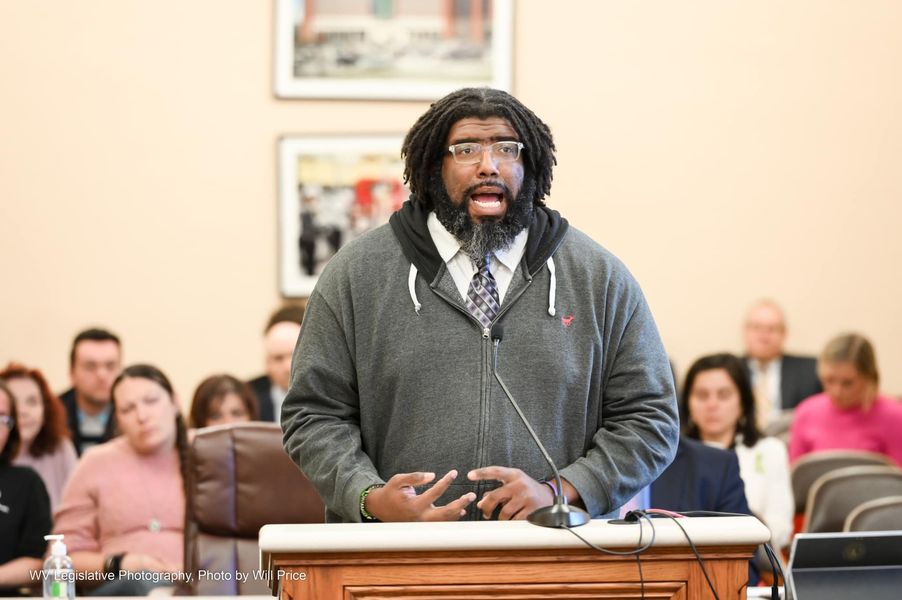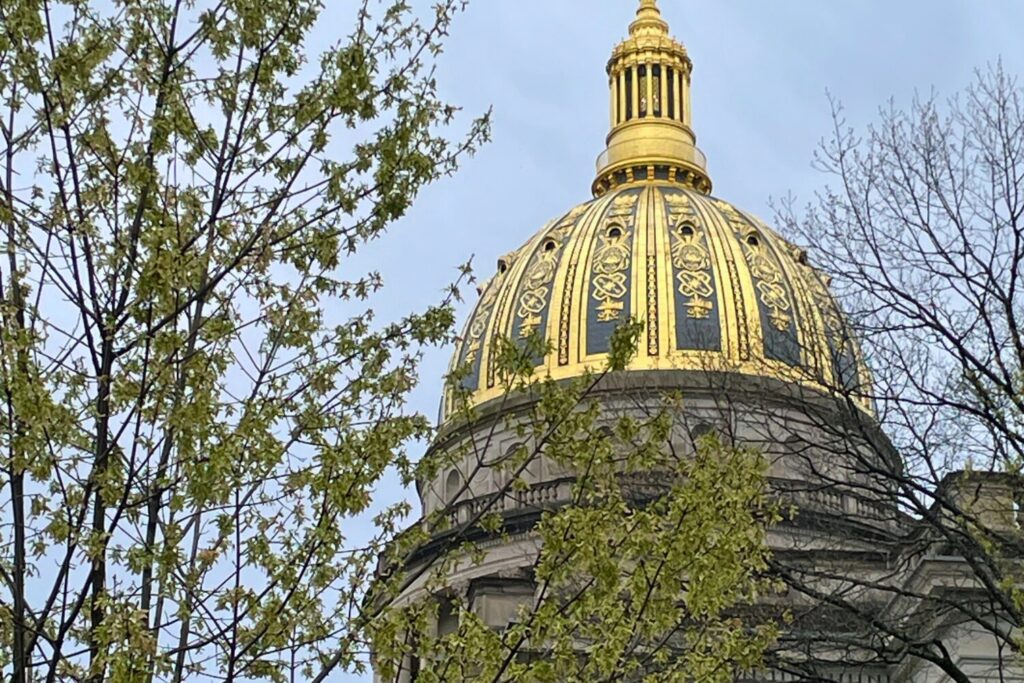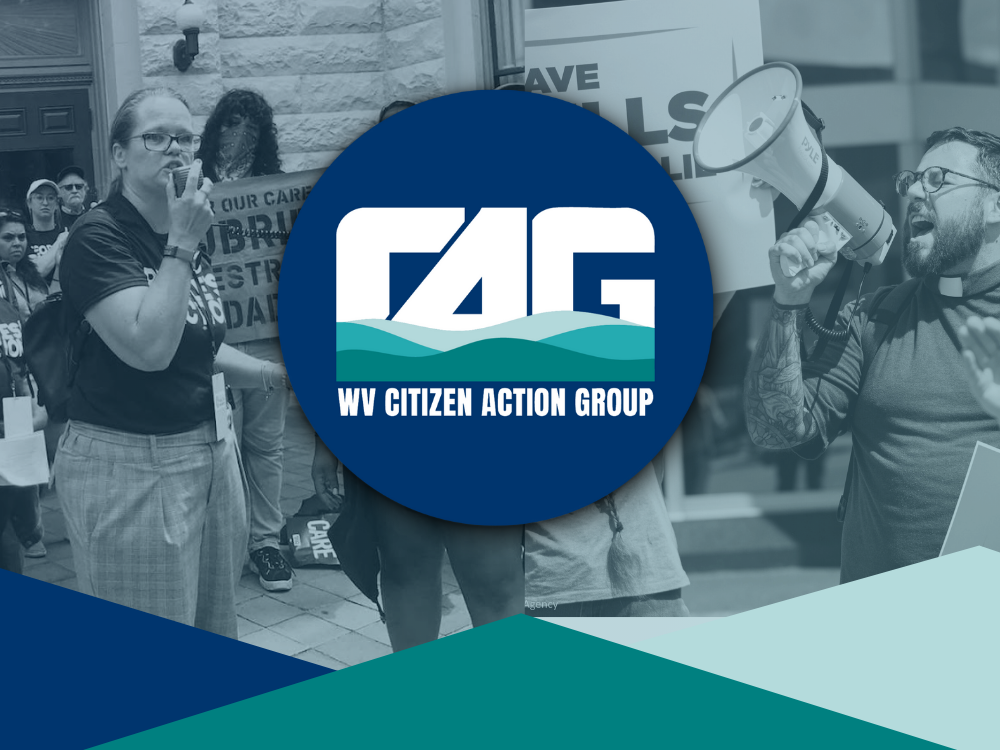- Like
- Digg
- Del
- Tumblr
- VKontakte
- Buffer
- Love This
- Odnoklassniki
- Meneame
- Blogger
- Amazon
- Yahoo Mail
- Gmail
- AOL
- Newsvine
- HackerNews
- Evernote
- MySpace
- Mail.ru
- Viadeo
- Line
- Comments
- Yummly
- SMS
- Viber
- Telegram
- Subscribe
- Skype
- Facebook Messenger
- Kakao
- LiveJournal
- Yammer
- Edgar
- Fintel
- Mix
- Instapaper
- Copy Link
from Lida Shepherd, American Friends Service Committee – WV Economic Justice Project
First, good news! HB 2471 which would reinstate the counterproductive and harmful policy of suspending drivers licenses for unpaid fines and fees has been parked (no pun intended) on the inactive house calendar. House leadership agrees that taking away people’s ability to drive is counterproductive and a step backwards for West Virginia. This is a win that we hope holds until crossover day on March 1st – thank you for taking action!
Debt-based license suspensions lock people in a vicious cycle of poverty and indebtedness, and have huge ramifications for families and workforce participation. How can people work to earn the money to pay their court debt if they cannot legally drive? In a rural state like West Virginia, license suspensions make it nearly impossible to get to work or take kids to school and doctor’s appointments.
Now for less than good news. HB 2567 passed the House Judiciary which enhances penalties for trespassing, making 2nd offense trespassing a felony with a mandatory 1-5 years of incarceration. There is no evidence that shows enhancing penalties prevents crime, however without a doubt HB 2567 will further criminalize homelessness and create additional strain on overcrowded jails and prisons.
Back to good news – HB 3445 an earned credit compliance bill for people on probation or parole was introduced! We are eager to see the House Judiciary take up this bill.
Also SB 633 capias reform was introduced! SB 633 would require magistrates and judges to set a hearing within 3 days of an arrest on a capias charge.* SB 633 would ensure people don’t sit in jail for weeks or months waiting to have a bond set on a capias. This bill could significantly address the horrific jail overcrowding problem: Capias arrests were the #1 admission to West Virginia jails last year (a number that has grown 150 % in the last decade). The bill was on the Senate Judiciary Committee agenda on Monday.
[*What Is a Capias Charge? – From Study.com Intro to Criminal Justice: A Capias charge is any legal suit brought against an individual if they failed to appear before a court trial on a court’s orders, they failed to obey a certain order from the court like entering a plea bargain, or they did not pay the fee or fine issued to them by the court. A capias charge can be a felony or misdemeanor depending on the severity of the order in which an individual fails to obey. Once a capias charge is placed on an individual, a court can order a bench warrant for their arrest. An important note on capias warrants is that only sitting judges or magistrates have the authority to issue a capias warrant.]
Other positive developments:
SB 495 – Ensures that state public records laws applies to jails again by undoing legislation passed in 2022 that significantly reduced transparency (PASSED SENATE!). See coverage in Mountain State Spotlight here.
HB 2548 – Requires DCR to issue no-cost, temporary ID within a week of release; valid at the DMV for 180 days from issuance (PASSED HOUSE! Senate Judiciary next).

HB 3552 – The jails committee originated and passed a bill yesterday which deals with jails per diem and shifting costs of incarceration to municipalities. Our hope is that this move could give city police officers the incentive to rethink recommending jail at arrest, and also encourage local governments to move more towards evidence-based alternatives like quick response teams, as well as enhanced use of civil citations and personal recognizance bonds. With incarceration costs reduced, tax dollars could be more wisely invested in housing, substance use treatment, and mental healthcare.
HB 2415 – House Workforce Development committee took up the Ban the Box bill which would eliminate “the box” on state job applications which asks about a person’s conviction history. We are hopeful the House Judiciary will take it up next!
Good bills that are stalled:
SB 509 – Require Correctional Facilities to provide free feminine hygiene products (Senate Government Org)
This was put on Senate Gov Org agenda but then was not taken up. Read here about Payton Childers advocacy efforts getting the bill this far.
SB 235 – Restoring voting rights for people on community supervision. Despite Kenneth Matthews incredible testimony in the Senate Judiciary subcommittee, this bill is stalled. We aren’t going to give up!
Good bills we are watching:
HB 2970 – Creating equitable right to expungement (Passed House)
HB 2793 – Clarifies that in Mental Hygiene proceedings, “No application for involuntary hospitalization may be denied solely due to the incarceration of the individual to be examined.” (passed House Jails and Prisons Committee, then Judiciary)
HB 2879 – To provide a pay increase to state correctional workers in West Virginia (Passed Jails and Prisons committee. Finance next)
HB 2276 – Issuing identification documents to homeless individuals residing at homeless shelters (House Judiciary)
HB 2343 – Automating expungement for non-convictions (House Judiciary)
HB 2981 – Prohibit the sheriff’s department from posting mug shot photos for an arrest (House Judiciary)
HB 2962 – Second Look Sentencing Act (House Judiciary)
Bad bills we are watching**:
SB 49 – Creating criminal offense for being under influence of controlled substance (Senate Judiciary)
HB 2594 – Relating to death penalty for first degree murder (Jails and Prisons, then Judiciary)
HB 2251 – Increasing penalties for sexual offenses (House Judiciary)
HB 2847 – To impose a life sentence on fentanyl dealers (To Prevention and Treatment of Substance Abuse then Judiciary)
**This is not an exhaustive list. There are many many bad bills that have been introduced that would enhance penalties, criminalize poverty, and double down on the failed war on drugs.




